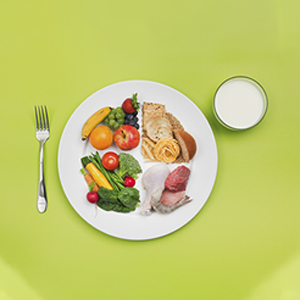
Dietary Recommendations

Dietary Recommendations
1. Increase fiber intake : Eat foods rich in fiber like fruits, vegetables, whole grains, and legumes to help reduce cholesterol levels and improve digestion.
2. Stay hydrated : Drink plenty of water to help flush out bile and reduce the risk of gallstone formation.
3. Limit saturated and trans fats : Avoid foods high in saturated and trans fats, such as red meat, full-fat dairy products, and processed snacks.
4. Choose healthy fats : Include sources of healthy fats like avocados, nuts, and olive oil in your diet.
5. Eat smaller, more frequent meals : Divide your daily food intake into 4-6 smaller meals to reduce symptoms of gallstones.
6. Avoid trigger foods : Identify and avoid foods that trigger your gallstone symptoms, such as fatty or greasy foods.
7. Consider a low-cholesterol diet : If you have high cholesterol, consider following a low-cholesterol diet to reduce your risk of gallstone formation.
Foods to Include
1. Leafy greens : Spinach, kale, and collard greens are rich in fiber and antioxidants.
2. Berries : Berries like blueberries, raspberries, and strawberries are rich in antioxidants and fiber.
3. Nuts and seeds : Almonds, walnuts, chia seeds, and flaxseeds are rich in healthy fats and fiber.
4. Fatty fish : Fatty fish like salmon, tuna, and mackerel are rich in omega-3 fatty acids.
5. Whole grains : Whole grains like brown rice, quinoa, and whole-wheat bread provide fiber and nutrients.
Foods to Avoid
1. Fatty or greasy foods : Avoid foods high in saturated and trans fats, such as fried foods, processed meats, and full-fat dairy products.
2. High-cholesterol foods : Limit foods high in cholesterol, such as egg yolks, organ meats, and high-fat dairy products.
3. Processed foods : Avoid processed foods, such as packaged snacks, sugary drinks, and refined grains.
4. Spicy foods : Avoid spicy foods that can trigger gallstone symptoms.
Supplements
1. Vitamin C : Vitamin C can help reduce oxidative stress and inflammation.
2. Omega-3 fatty acids : Omega-3 fatty acids can help reduce inflammation and promote overall health.
3. Probiotics : Probiotics can help maintain a healthy gut microbiome and reduce symptoms of gallstones.
Remember to consult with your healthcare provider or a registered dietitian to develop a personalized diet plan that meets your specific needs and health goals.
